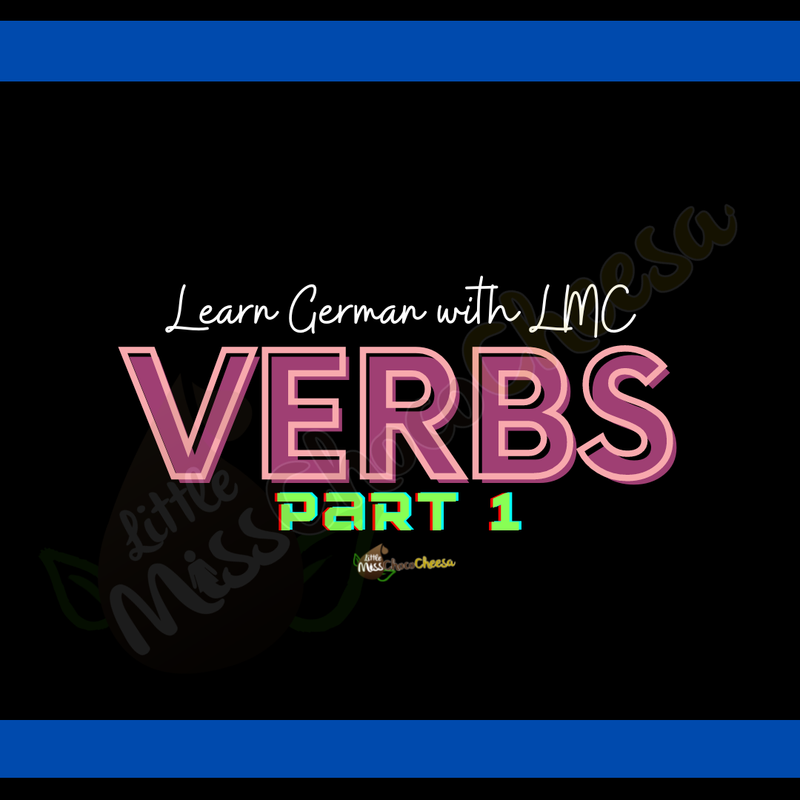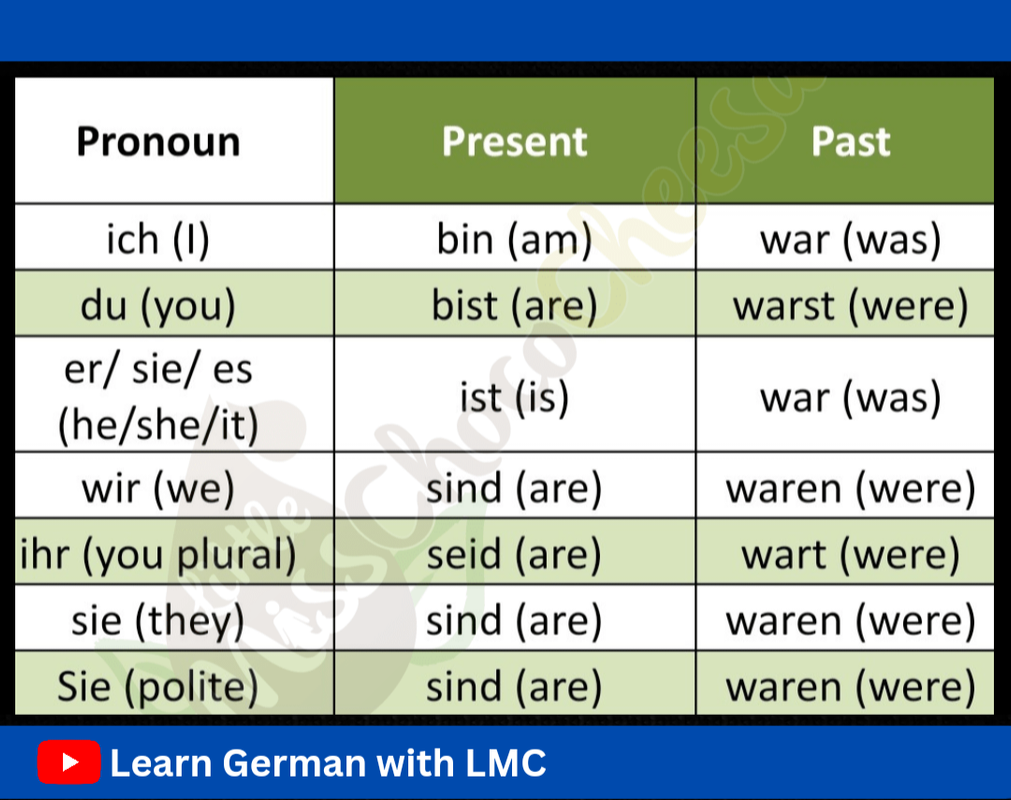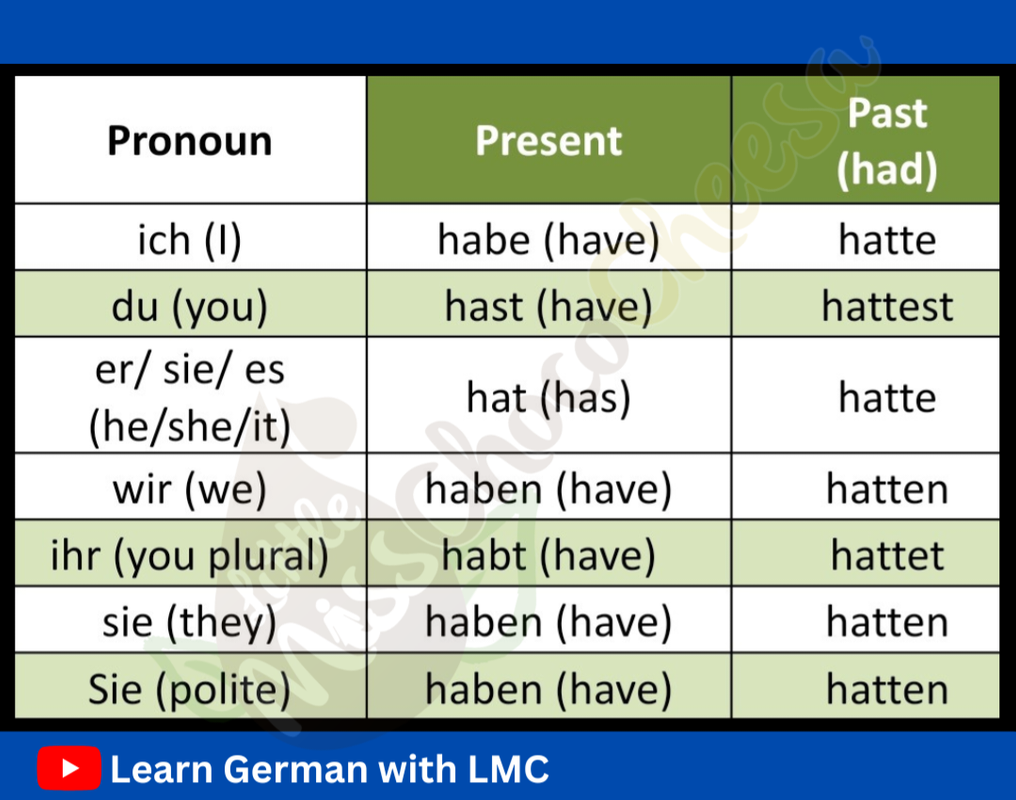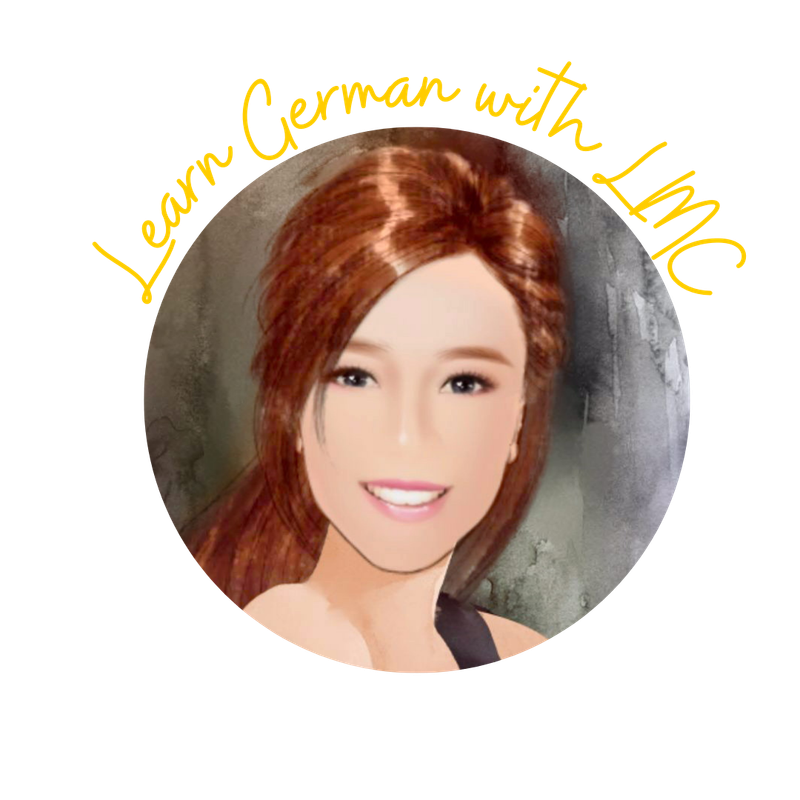Everyone learning and teaching German A1 would tell you that learning verbs is an integral part of the language. You need to know the common verbs to pass the German A1 exam.
What is a verb?
Simply put, verbs are action words or state of being.
Let us first learn a few verbs and phrases that you might find useful in everyday situations and the German A1 exam. Please start memorizing these verbs.
gehen (to go/to walk)
kaufen (to buy)
suchen (to look for)
fragen (to ask)
helfen (to help)
What does infinitive and verb stems mean?
Did you notice that these verbs all end with -en? When you look up verbs in the dictionary, they all end with -en. Those are the infinitive forms of verbs.
The words before the ending -en are called the verb stems.
INFINITIVE: gehen
VERB STEM: geh
They are important because in German, as you will see later on, verb stems for regular verbs stay the same, and the endings change depending on who is talking. Take note that this is the case for regular verbs. It is different for irregular verbs. We will learn more about regular and irregular verbs next time.
Why does the endings of verbs change?
Conjugation is the term we use when we change the ending of a verb. The ending we use will depend on subject (who is doing the action) and the tense (when - past, present future, etc.).
Have a look at the verb conjugation of "fragen" (to ask) for the present tense. You have to memorize the endings for each pronoun.
ich frage (I ask)
du fragst (you ask)
er/sie fragt (he/she asks)
wir fragen (we ask)
ihr fragt ( you -plural ask)
sie fragen (they ask)
Sie fragen (you -formal ask)
What are Auxiliary Verbs?
Auxiliary verbs are an integral part of the German language. The three auxiliary verbs are irregular verbs.
- sein (to be)
- haben (to have)
- werden (to become)
Let us focus on the verb sein (to be). To express how a person is feeling, we use the verb "sein" (to be).
The verb changes according to the person whose feelings we're describing. Knowing it is very important and it should be one of the things you really memorize early on.
Der Mann ist fröhlich. (The man is happy.)
Der Männer sind fröhlich. (The men are happy)
Er ist traurig. (He is sad.)
Ich bin müde. (I am tired.)
The verb that is also very important is the verb haben. See the table below and memorize the haben verbs.
In grammar, it is important to use the correct form of the verb that agrees with the gender, the number and the tense.
You will be more familiarized with the verbs sein and haben because they are almost always part of German sentences.
Verb List 1 Food and Shopping
trinken - to drink
essen - to eat
füttern - to feed (animal); put food in mouth (baby)
frühstücken - to have breakfast
bestellen - to order
schmecken - to taste
kochen - to cook/boil
einschenken - to pour something into something
kaufen - to buy
einkaufen - to shop
verkaufen - to sell
zählen - to count
bezahlen - to pay
reservieren to reserve
stornieren - to cancel a booking or an order
In the next lesson, we are going to learn about the basic structure of a German sentence.
To go back to the lessons list, click here.





0 Comments